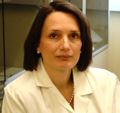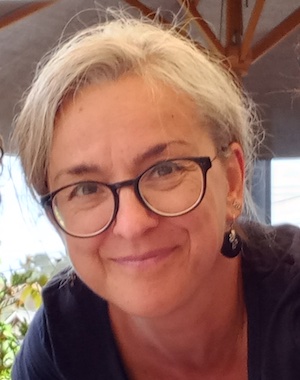Studiare
In questa sezione è possibile reperire le informazioni riguardanti l'organizzazione pratica del corso, lo svolgimento delle attività didattiche, le opportunità formative e i contatti utili durante tutto il percorso di studi, fino al conseguimento del titolo finale.
Calendario accademico
Il calendario accademico riporta le scadenze, gli adempimenti e i periodi rilevanti per la componente studentesca, personale docente e personale dell'Università. Sono inoltre indicate le festività e le chiusure ufficiali dell'Ateneo.
L’anno accademico inizia il 1° ottobre e termina il 30 settembre dell'anno successivo.
Calendario didattico
Il calendario didattico indica i periodi di svolgimento delle attività formative, di sessioni d'esami, di laurea e di chiusura per le festività.
| Periodo | Dal | Al |
|---|---|---|
| I semestre | 1-ott-2020 | 29-gen-2021 |
| II semestre | 1-mar-2021 | 11-giu-2021 |
| Sessione | Dal | Al |
|---|---|---|
| Sessione invernale d'esame | 1-feb-2021 | 26-feb-2021 |
| Sessione estiva d'esame | 14-giu-2021 | 30-lug-2021 |
| Sessione autunnale d'esame | 1-set-2021 | 30-set-2021 |
| Sessione | Dal | Al |
|---|---|---|
| Sessione Estiva | 15-lug-2021 | 15-lug-2021 |
| Sessione Autunnale | 15-ott-2021 | 15-ott-2021 |
| Sessione Invernale | 15-mar-2022 | 15-mar-2022 |
| Periodo | Dal | Al |
|---|---|---|
| Festa dell'Immacolata | 8-dic-2020 | 8-dic-2020 |
| Vacanze Natalizie | 24-dic-2020 | 3-gen-2021 |
| Epifania | 6-gen-2021 | 6-gen-2021 |
| Vacanze Pasquali | 2-apr-2021 | 5-apr-2021 |
| Festa del Santo Patrono | 21-mag-2021 | 21-mag-2021 |
Calendario esami
Gli appelli d'esame sono gestiti dalla Unità Operativa Segreteria Corsi di Studio Scienze e Ingegneria.
Per consultazione e iscrizione agli appelli d'esame visita il sistema ESSE3.
Per problemi inerenti allo smarrimento della password di accesso ai servizi on-line si prega di rivolgersi al supporto informatico della Scuola o al servizio recupero credenziali
Per dubbi o domande leggi le risposte alle domande più frequenti F.A.Q. Iscrizione Esami
Docenti
 mariacaterina.baruffi@univr.it
mariacaterina.baruffi@univr.it
 vittoria.cozza@univr.it
vittoria.cozza@univr.it
Piano Didattico
Il piano didattico è l'elenco degli insegnamenti e delle altre attività formative che devono essere sostenute nel corso della propria carriera universitaria.
Selezionare il piano didattico in base all'anno accademico di iscrizione.
1° Anno
| Insegnamenti | Crediti | TAF | SSD |
|---|
2° Anno Attivato nell'A.A. 2021/2022
| Insegnamenti | Crediti | TAF | SSD |
|---|
| Insegnamenti | Crediti | TAF | SSD |
|---|
| Insegnamenti | Crediti | TAF | SSD |
|---|
| Insegnamenti | Crediti | TAF | SSD |
|---|
Legenda | Tipo Attività Formativa (TAF)
TAF (Tipologia Attività Formativa) Tutti gli insegnamenti e le attività sono classificate in diversi tipi di attività formativa, indicati da una lettera.
Computational analysis of biological structures and networks (2020/2021)
Codice insegnamento
4S004551
Crediti
6
Lingua di erogazione
Inglese
Settore Scientifico Disciplinare (SSD)
ING-INF/05 - SISTEMI DI ELABORAZIONE DELLE INFORMAZIONI
L'insegnamento è organizzato come segue:
Teoria
Laboratorio
Obiettivi formativi
Il corso si propone fornire i fondamenti teorici e applicativi della Pattern Recognition per l'analisi di dati biologici dotati di struttura complessa (come grafi, reti, sequenze, stringhe). In particolare verranno presentate e discusse le principali tecniche computazionali per l'analisi di dati strutturati, con particolare attenzione alla rappresentazione, agli approcci generativi e agli approcci discriminativi. Conoscenza e capacità di comprensione Al termine dell'insegnamento lo studente dovrà dimostrare di saper applicare su dati reali le metodologie per il riconoscimento di modelli dei dati complessi attraverso tecniche la costruzione di un sistema di Pattern Recognition. Conoscenze applicate e capacità di comprensione a) Rappresentazione di dati biologici con struttura complessa b) Classificazione di dati biologici con struttura complessa c) Clustering di dati biologici con struttura complessa Autonomia di giudizio In particolare, alla fine del corso lo studente dovrà dimostrare di essere in grado di proporre in modo autonomo soluzioni efficaci ed efficienti per il dominio applicativo biomedico e bioinformatico e di individuare le criticità per il trattamento di problemi complessi di bioinformatica. Abilità comunicative Alla fine del corso lo studente dovrà dimostrare di essere in grado di relazionarsi con i colleghi nello svolgimento di lavori in gruppo. Capacità di apprendere Alla fine del corso lo studente dovrà dimostrare di essere in grado di apprendere nuove metodologie per la soluzione di problemi bioinformatici e clinici e applicarli in modo autonomo. In particolare dovrà dimostrare di essere in grado di analizzare un problema biologico che coinvolge dati con una struttura complessa utilizzando il punto di vista della Pattern Recognition; avrà inoltre le conoscenze necessarie per poter ideare, sviluppare e implementare le diverse componenti di un sistema di Pattern Recognition per l'analisi di dati biologici strutturati. Sarà inoltre in grado di proseguire gli studi in modo autonomo nell'ambito della Pattern Recognition.
Programma
CAPITOLO 1. Basi di PR e Introduzione ai dati strutturati.
CAPITOLO 2. Rappresentazione per dati strutturati
- Tecniche di riduzione della dimensionalità
- Approcci Bag of Words
- Approcci di rappresentazione basati sulla dissimilarità
CAPITOLO 3. Modelli per dati strutturati
- Introduzione ai modelli grafici probabilistici
- Reti di Bayes
- Inferenza e Addestramento
CAPITOLO 4. Kernel per dati strutturati
- Support Vector Machines e kernel
- kernel per dati strutturati
CAPITOLO 5. Paradigmi di learning avanzati
Completa il corso una parte di laboratorio, nella quale verranno implementati alcuni degli algoritmi visti nella parte di teoria.
Modalità d'esame
Per superare l'esame gli studenti dovranno dimostrare di:
- essere in grado di descrivere i diversi componenti di un sistema di Pattern Recognition per dati strutturati in modo preciso, organico e senza divagazioni
- saper analizzare, capire e descrivere un sistema di Pattern Recognition (o una sua parte) relativo ad un problema di tipo biologico che coinvolge dati strutturati
L'esame consiste in:
i) una prova scritta contenente domande a risposta aperta sugli argomenti trattati nel corso
ii) una presentazione orale di un articolo scientifico pubblicato in importanti riviste di settore su un tema specifico deciso durante il corso. L'articolo viene scelto dal candidato e approvato dal docente del corso
Le due parti dell'esame sono superabili separatamente e il voto complessivo è dato dalla somma delle valutazioni in 15esimi ottenute nelle due parti. Lo scritto si ritiene superato con un voto maggiore o uguale a 9. L’esame si ritiene superato se la somma delle parti è maggiore o uguale a 18. Ogni valutazione rimane valida per l’intero anno accademico in corso.
Materiale e documenti
-

 Course Description
(it, 83 KB, 05/10/20)
Course Description
(it, 83 KB, 05/10/20)
-

 Instructions for Thematic Workshop
(it, 85 KB, 17/11/20)
Instructions for Thematic Workshop
(it, 85 KB, 17/11/20)
Tipologia di Attività formativa D e F
Le attività formative in ambito D o F comprendono gli insegnamenti impartiti presso l'Università di Verona o periodi di stage/tirocinio professionale.
Nella scelta delle attività di tipo D, gli studenti dovranno tener presente che in sede di approvazione si terrà conto della coerenza delle loro scelte con il progetto formativo del loro piano di studio e dell'adeguatezza delle motivazioni eventualmente fornite.
| anni | Insegnamenti | TAF | Docente |
|---|---|---|---|
| 1° 2° | Linguaggio Programmazione Matlab-Simulink | D |
Bogdan Mihai Maris
(Coordinatore)
|
| anni | Insegnamenti | TAF | Docente |
|---|---|---|---|
| 1° 2° | Introduzione alla stampa 3D | D |
Franco Fummi
(Coordinatore)
|
| 1° 2° | Linguaggio programmazione Python | D |
Vittoria Cozza
(Coordinatore)
|
| 1° 2° | Progettazione di componenti hardware su FPGA | D |
Franco Fummi
(Coordinatore)
|
| 1° 2° | Prototipizzazione con Arduino | D |
Franco Fummi
(Coordinatore)
|
| 1° 2° | Tutela dei beni immateriali (SW e invenzione) tra diritto industriale e diritto d’autore | D |
Roberto Giacobazzi
(Coordinatore)
|
| anni | Insegnamenti | TAF | Docente |
|---|---|---|---|
| 1° 2° | Lab.: The fashion lab (1 cfu) | D |
Maria Caterina Baruffi
(Coordinatore)
|
| 1° 2° | Minicorso Blockchain | D |
Nicola Fausto Spoto
(Coordinatore)
|
Prospettive
Avvisi degli insegnamenti e del corso di studio
Per la comunità studentesca
Se sei già iscritta/o a un corso di studio, puoi consultare tutti gli avvisi relativi al tuo corso di studi nella tua area riservata MyUnivr.
In questo portale potrai visualizzare informazioni, risorse e servizi utili che riguardano la tua carriera universitaria (libretto online, gestione della carriera Esse3, corsi e-learning, email istituzionale, modulistica di segreteria, procedure amministrative, ecc.).
Entra in MyUnivr con le tue credenziali GIA: solo così potrai ricevere notifica di tutti gli avvisi dei tuoi docenti e della tua segreteria via mail e a breve anche tramite l'app Univr.
Prova Finale
Scadenziari e adempimenti amministrativi
Per gli scadenziari, gli adempimenti amministrativi e gli avvisi sulle sessioni di laurea, si rimanda al servizio Sessioni di laurea - Scienze e Ingegneria.
Necessità di attivare un tirocinio per tesi
Per stage finalizzati alla stesura della tesi di laurea, non è sempre necessaria l'attivazione di un tirocinio tramite l'Ufficio Stage. Per maggiori informazioni, consultare il documento dedicato, che si trova nella sezione "Documenti" del servizio dedicato agli stage e ai tirocini.
Regolamento della prova finale
Alla tesi di laurea sono dedicati 24 CFU, per un lavoro che non deve superare i 4-5 mesi a tempo pieno per la/o studentessa/studente.
La tesi di laurea sarà compilata e discussa in lingua inglese, anche mediante l'ausilio di supporti multimediali quali slide, filmati, immagini e suoni.
Scopo della Tesi di Laurea
Scopo della tesi è quello di sviluppare uno studio originale che può culminare con un progetto applicativo o un risultato teorico connesso a specifici problemi di natura progettuale o una rassegna critica sullo stato dell'arte in un determinato ambito di studio. Nel corso dello svolgimento della Tesi il laureando dovrà, sotto la guida del relatore ed eventuali correlatori, affrontare lo studio e l'approfondimento degli argomenti scelti, ma anche acquisire capacità di sintesi e applicazione creativa delle conoscenze acquisite. Il contenuto della Tesi deve essere inerente a tematiche della bioinformatica e della informatica medica o discipline strettamente correlate. La Tesi consiste nella presentazione in forma scritta di attività che possono essere articolate come: -progettazione e sviluppo di applicazioni o sistemi; -analisi critica di contributi tratti dalla letteratura scientifica; -contributi originali di ricerca.
La Tesi può essere redatta sia in lingua inglese che in lingua italiana, e può essere discussa sia in inglese che in italiano, anche mediante l'ausilio di supporti multimediali quali slide, filmati, immagini e suoni. Nel caso di tesi redatta in lingua italiana alla medesima dovrà essere aggiunto un breve riassunto in lingua inglese.
Modalità di svolgimento e valutazione.
La prova finale consiste nello sviluppo di una tesi di laurea, che impegni lo studente in un lavoro di ricerca, formalizzazione, progettazione o sviluppo: tale lavoro contribuirà sostanzialmente al completamento della sua formazione tecnico-scientifica. Ogni tesi di Laurea può essere interna o esterna, a seconda che sia svolta presso l'Università di Verona o in collaborazione con un altro Ente. Ogni tesi prevede un relatore, eventualmente affiancato da uno o più correlatori, e un controrelatore. Il controrelatore è nominato dal Collegio Didattico almeno 20 gg prima della discussione della Tesi, verificata l'ammissibilità dello studente a sostenere l'esame di Laurea Magistrale. Per quanto riguarda gli aspetti giuridici (ad esempio, proprietà intellettuale dei risultati) legati alla Tesi e ai risultati ivi contenuti, si rimanda alla legislazione vigente in materia ed ai Regolamenti di Ateneo.
Valutazione delle Tesi
I criteri su cui sono chiamati ad esprimersi relatore ed eventuali correlatori e controrelatore sono i seguenti:
1. livello di approfondimento del lavoro svolto, in relazione allo stato dell'arte dei settori disciplinari di pertinenza informatica, con enfasi sulle applicazioni agli ambiti medici e biologici;
2. avanzamento conoscitivo o tecnologico apportato dalla Tesi;
3. impegno critico espresso dalla/dal laureanda/o;
4. impegno sperimentale e/o di sviluppo formale espresso dal laureando;
5. autonomia di lavoro espressa dalla/dal laureanda/o;
6. significatività delle metodologie impiegate;
7. accuratezza dello svolgimento e della scrittura;
La/il controrelatrice/controrelatore non è chiamata/o ad esprimersi sul punto 5.
Voto di Laurea.
Il voto di Laurea (espresso in 110mi) è un valore intero compreso tra 66/110 e 110/110 e viene formato dalla somma, arrotondata al numero intero più vicino (e.g., 93.50 diventa 94, 86.49 diventa 86), dei seguenti addendi:
1) media pesata sui crediti e rapportata a 110 dei voti conseguiti negli esami di profitto;
2) valutazione del colloquio di Laurea e della Tesi secondo le seguenti modalità:
a) attribuzione di un coefficiente compreso tra 0 e 1 (frazionario con una cifra decimale) per ciascuno dei punti 1-7 elencati sopra;
b) attribuzione di un coefficiente compreso tra 0 e 1 (frazionario con una cifra decimale) per la qualità della presentazione;
c) somma dei coefficienti attribuiti ai punti a e b.
La presenza di eventuali lodi ottenute negli esami sostenuti, la partecipazione a stage ufficialmente riconosciuti dal Collegio Didattico di Informatica, il superamento di esami in soprannumero ed il raggiungimento della Laurea in tempi contenuti rispetto alla durata legale del corso degli studi possono essere utilizzati dalla Commissione di Laurea per attribuire un ulteriore incremento di un punto. Qualora la somma ottenuta raggiunga 110/110, la Commissione può decidere l'attribuzione della lode. La lode viene
proposta e discussa dalla Commissioni, senza l'adozione di particolari meccanismi di calcolo automatico. In base alle norme vigenti, la lode viene attribuita solo se il parere è unanime
Tesi esterne
Una Tesi esterna viene svolta in collaborazione con un ente diverso dall'Università di Verona. In tal caso, il laureando dovrà preventivamente concordare il tema della Tesi con un relatore dell'Ateneo. Inoltre, è previsto almeno un correlatore appartenente all'ente esterno, quale riferimento immediato per lo studente nel corso dello svolgimento dell’attività di Tesi. Relatore e correlatori devono essere indicati nella domanda di assegnazione Tesi. Le modalità assicurative della permanenza dello studente presso l'Ente esterno sono regolate dalle norme vigenti presso l'Università di Verona. Se la Tesi si configura come un periodo di formazione presso tale ente, allora è necessario stipulare una convenzione tra l'Università e detto ente. I risultati contenuti nella Tesi sono patrimonio in comunione di tutte le persone ed enti coinvolti. In particolare, i contenuti ed i risultati della Tesi sono da considerarsi pubblici. Per tutto quanto riguarda aspetti non strettamente scientifici (e.g. convenzioni, assicurazioni) ci si rifà alla delibera del Senato Accademico del 12 gennaio 1999.
Relatore, correlatori, controrelatori. La Tesi di Laurea viene presentata da un relatore. Relatore può essere un docente di ruolo del corso di Laurea Magistrale in Medical Bioinformatics o del Dipartimento di Informatica o inquadrato nei SSD ING/INF/05 e INF/01 dell’Ateneo. Oltre a coloro che hanno i requisiti indicati rispetto al ruolo di relatore (come indicato sopra), possono svolgere il ruolo di correlatori anche ricercatori operanti in istituti di ricerca extra-universitari assegnisti di ricerca, titolari di borsa di studio post-dottorato, dottorandi di ricerca, personale tecnico del Dipartimento, cultori della materia nominati da un Ateneo italiano ed ancora in vigore, referenti aziendali esperti nel settore considerato nella Tesi. Controrelatore può essere nominato qualunque docente dei settori scientifico-disciplinari presenti nell’offerta didattica della laurea magistrale in Medical Bioinformatics e in servizio presso l'Università degli Studi di Verona, che risulti particolarmente competente nell'ambito specifico di studio della Tesi.
Modalità di frequenza
Come riportato nel Regolamento Didattico, la frequenza al corso di studio non è obbligatoria.

 +39 045 8027657
+39 045 8027657























